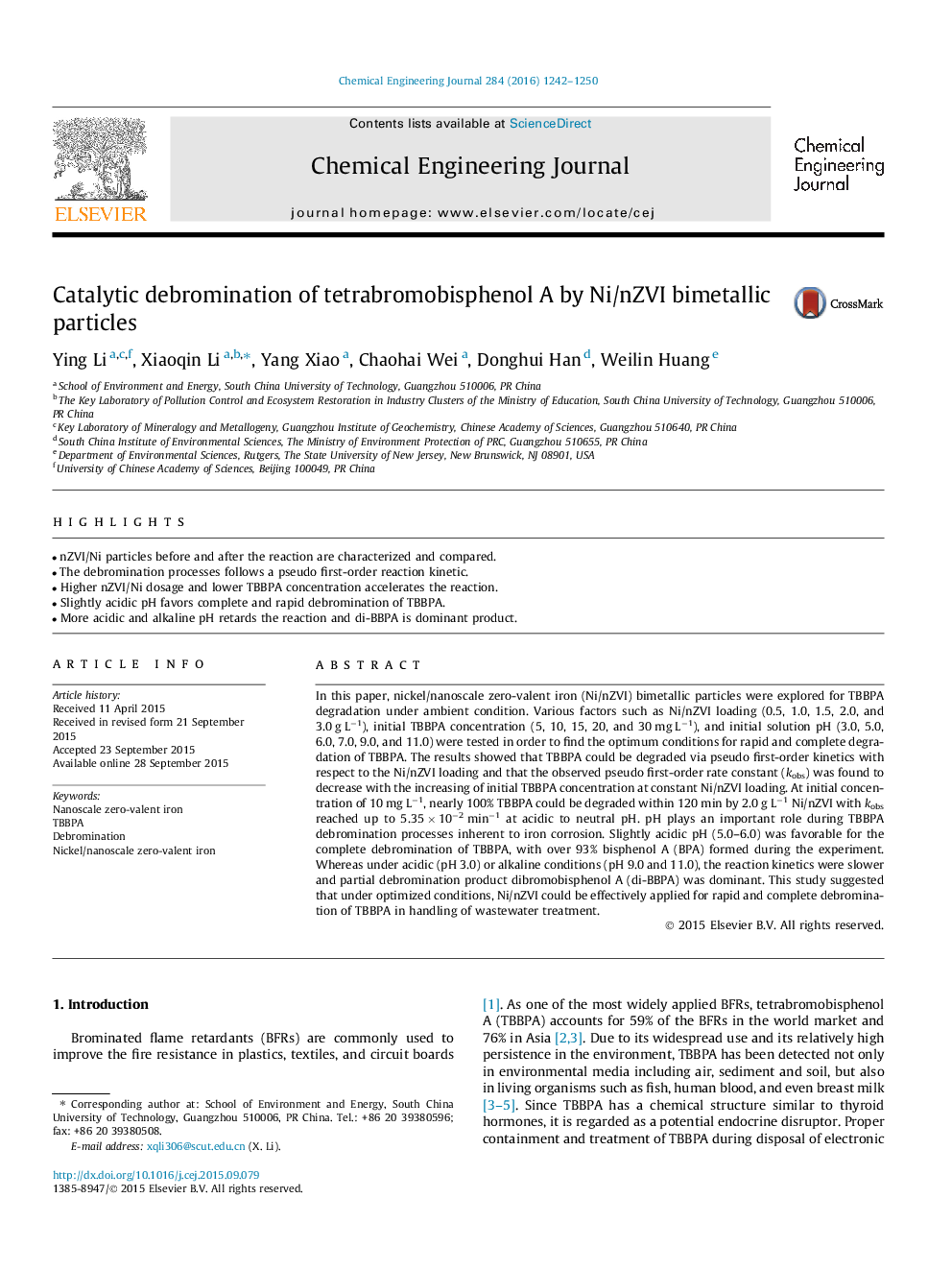| Article ID | Journal | Published Year | Pages | File Type |
|---|---|---|---|---|
| 146031 | Chemical Engineering Journal | 2016 | 9 Pages |
•nZVI/Ni particles before and after the reaction are characterized and compared.•The debromination processes follows a pseudo first-order reaction kinetic.•Higher nZVI/Ni dosage and lower TBBPA concentration accelerates the reaction.•Slightly acidic pH favors complete and rapid debromination of TBBPA.•More acidic and alkaline pH retards the reaction and di-BBPA is dominant product.
In this paper, nickel/nanoscale zero-valent iron (Ni/nZVI) bimetallic particles were explored for TBBPA degradation under ambient condition. Various factors such as Ni/nZVI loading (0.5, 1.0, 1.5, 2.0, and 3.0 g L−1), initial TBBPA concentration (5, 10, 15, 20, and 30 mg L−1), and initial solution pH (3.0, 5.0, 6.0, 7.0, 9.0, and 11.0) were tested in order to find the optimum conditions for rapid and complete degradation of TBBPA. The results showed that TBBPA could be degraded via pseudo first-order kinetics with respect to the Ni/nZVI loading and that the observed pseudo first-order rate constant (kobs) was found to decrease with the increasing of initial TBBPA concentration at constant Ni/nZVI loading. At initial concentration of 10 mg L−1, nearly 100% TBBPA could be degraded within 120 min by 2.0 g L−1 Ni/nZVI with kobs reached up to 5.35 × 10−2 min−1 at acidic to neutral pH. pH plays an important role during TBBPA debromination processes inherent to iron corrosion. Slightly acidic pH (5.0–6.0) was favorable for the complete debromination of TBBPA, with over 93% bisphenol A (BPA) formed during the experiment. Whereas under acidic (pH 3.0) or alkaline conditions (pH 9.0 and 11.0), the reaction kinetics were slower and partial debromination product dibromobisphenol A (di-BBPA) was dominant. This study suggested that under optimized conditions, Ni/nZVI could be effectively applied for rapid and complete debromination of TBBPA in handling of wastewater treatment.
